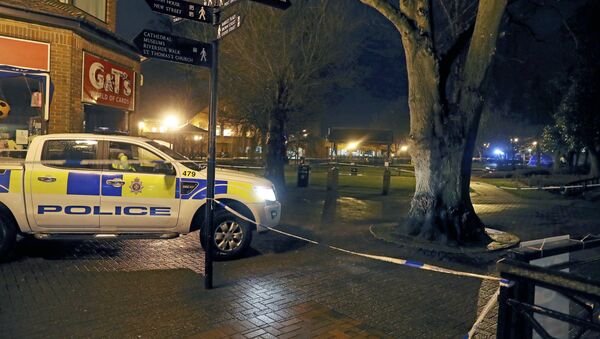Sputnik: If this incident were at the hands of the Russians — why now, with the upcoming elections and the world cup on the way? Where is the logic there?
Tom Secker: There doesn't seem to be much logic there. We never really know what the intelligence services are getting up to. So it's certainly not something we can rule out. The only logic I can see is that this would have been some kind of revenge move, or potentially a warning to other people who might do the same thing, you know, cross over to the other side — sell out their colleagues, coworkers, and the other people that they might know. Even with that scenario, you'd have to wonder, why now?
Sputnik: It would be very easy to make a death ‘untraceable’ — in fact the CIA assassination manual explains exactly how to make a homicide look like suicide. Why would that not have been the case here?
Tom Secker: I guess the question is what is the primary motive here? If the primary motive is simply to kill the guy then no, you wouldn't do it this way. You'd kill him any way you like, and then make sure no one ever found the body. If the point was to send a message, again, you wouldn't necessarily do it in this way. You would make it appear as though it was an accident, suicide or accidental overdose or something like that. The message would still be sent, because the people watching would still understand what had happened in reality, but it would make it so that it could never be chased back to you in a legal sense.
This sounds like something that was a rush job, it sounds like something that was carried out possibly on the fly, with fear of being caught. And that's why it was at least somewhat botched.
Sputnik: How often do these sorts of cover-up homicides occur?
Tom Secker: If you think of cover-ups in a broader sense, there are a lot of examples. Back in 2010, a bunch of Israeli Government Agents, (we assume Mossad), went to Dubai and killed that senior Hamas figure in a Dubai hotel. They did the whole thing travelling on forged British passports and as far as we know, the British Government hasn't done anything about this. Which begs the question, how many secret agents are there? Running around with fake British passports, and our government is just letting this happen. So in that sense, while it seems that Israel never really denied that they carried out this assassination, the British Government, to some extent participated in a cover-up of exactly how that was done- by not pursuing this passport issue. So honestly, cover-ups are kind of standard.
Sputnik: The blame has quickly jumped to Russia — despite Amber Rudd asking people not to jump to conclusions before the evidence is out- what’s happened there?
Tom Secker: Well on the one hand you have the Home Secretary saying that in public, but you also seem to have quite a number of officials anonymously briefing the media — saying that they think it was Russia, and they keep being quoted. So there is clearly the official stance, which is 'Oh no, we're not making any assumptions until we have the evidence in hand', and then there is the quiet, unofficial stance of 'Yes this was Russia, put out the story that it was Russia'.
Sputnik: And is there any evidence to suggest that Russia did it?
Tom Secker: Why use such an exotic poison — unless the aim is to try and remind everyone of the Litvinenko murder. Which obviously, most people believe was carried out by the Russian State. That is the obvious connection that everyone is making. So why would Russia do it like that? Why would they do something that would instantly bring to mind this previous murder that had been pinned on them? The only reason to use such an exotic poison would be to remind everyone of that, and therefore plant the seed of 'oh this is the Russian State killing one of their own'. Whereas, if you look at this guy’s biography, at least what we know of it, there are all sorts of people who'd have a motive for killing him. He betrayed quite a lot of people, and not just in terms of governments, not just in terms of government agents or intelligence agencies, but potentially private criminal organizations. They too could have a motive for trying to pin the whole thing on Russia.
Let's not forget- and this is a detail I haven’t yet seen anywhere, at least in the mainstream media coverage — this guy was found only a few miles from Porton Down. That is the British ministry of Defenses lab for developing exotic weaponry — bio and chemical weapons. Why has no one drawn attention to this? I mean literally, we are talking eight to ten miles down the road. That's a fact you would have thought was worth mentioning at the very least. Even if it's some crack-pot rogue scientist from that lab, who smuggled something out, or sold it to someone, who then carried out the hit. Even if it would be a scenario like that, it's worth exploring. It's certainly a lot more worth exploring than waving a big flag saying 'Russia did it.'
The views expressed in this article are solely those of the speaker and do not necessarily reflect the official position of Sputnik.

